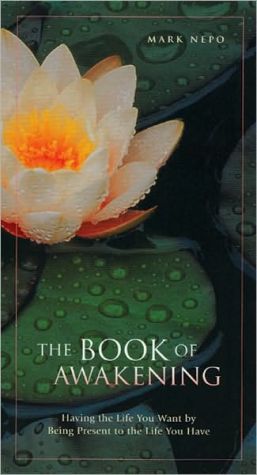The Boswell Thesis: Essays on Christianity, Social Tolerance, and Homosexuality
Few books have had the social, cultural, and scholarly impact of John Boswell's Christianity, Social Tolerance, and Homosexuality. Arguing that neither the Bible nor the Christian tradition was nearly as hostile to homoeroticism as was generally thought, its initial publication sent shock waves through university classrooms, gay communities, and religious congregations. Twenty-five years later, the aftershocks still reverberate. The Boswell Thesis brings together fifteen leading scholars at...
Search in google:
Few books have had the social, cultural, and scholarly impact of John Boswell’s Christianity, Social Tolerance, and Homosexuality. Arguing that neither the Bible nor the Christian tradition was nearly as hostile to homoeroticism as was generally thought, its initial publication sent shock waves through university classrooms, gay communities, and religious congregations. Twenty-five years later, the aftershocks still reverberate. The Boswell Thesis brings together fifteen leading scholars at the intersection of religious and sexuality studies to comment on this book’s immense impact, the endless debates it generated, and the many contributions it has made to our culture.The essays in this magnificent volume examine a variety of aspects of Boswell's interpretation of events in the development of sexuality from Classical Antiquity through the Middle Ages, including a Roman emperor’s love letters to another man; suspicions of sodomy among medieval monks, knights, and crusaders; and the gender-bending visions of Christian saints and mystics. Also included are discussions of Boswell’s career, including his influence among gay and lesbian Christians and his role in academic debates between essentialists and social constructionists.Elegant and thought-provoking, this collection provides a fitting twenty-fifth anniversary tribute to the incalculable influence of Christianity, Social Tolerance, and Homosexuality and its author. Ecclesiastical History The Boswell Thesis is itself evidence that, even twenty-five years after its publication, Christianity, Social Tolerance, and Homosexuality is still there, is still provoking."— Andy Hyde
THE BOSWELL THESIS \ Essays on Christianity, Social Tolerance, and Homosexuality\ \ The University of Chicago Press \ Copyright © 2006 The University of Chicago\ All right reserved.\ ISBN: 978-0-226-45741-3\ \ \ \ Chapter One \ The Boswell Thesis Mathew Kuefler\ In 1980, John Boswell published Christianity, Social Tolerance, and Homosexuality: Gay People in Western Europe from the Beginning of the Christian Era to the Fourteenth Century (hereafter and throughout this collection CSTH). Twenty-five years later, in 2005, it is time to appraise the impact of the book, to consider the strength of some of its arguments, and to reflect on the different directions the study of sexuality in Antiquity and the Middle Ages has taken since its publication. This collection, with essays written by many of the leading scholars in their fields, is just such an attempt. Since 2005 is also the tenth anniversary of John Boswell's death, it seems fitting to reflect more broadly on his career and on the revolutionary ideas that he put forward about the relationship between Christianity and homoeroticism: an opportunity to revisit what I am calling the Boswell Thesis.\ Nineteen eighty might not seem that far removed in time from current events. In that year, Ronald Reagan was elected president of the United States, and Saddam Hussein became president of Iraq. Also in that year, the U.S. and other countries boycotted the OlympicGames held in Moscow, in retaliation for the Soviet Union's invasion of Afghanistan. The news information television channel CNN first broadcast in 1980, and the first personal computers were sold.\ Within the gay community, though, 1980 seems a long way off. It was arguably the highest early peak of the gay rights movement. The Stonewall Riots, largely credited as the birth of the modern gay movement, had taken place eleven years earlier in 1969, and the movement had grown throughout the 1970s. There had been setbacks: Anita Bryant's successful campaign to repeal gay rights legislation, first in Florida and then across America (1977), and the assassination of the openly gay San Francisco supervisor Harvey Milk (1978). Still, the first March on Washington (1979) and the public protests at the release of the film Cruising (1980) were clear signs of emergent political strength. But the future was not to be so bright. Nineteen eighty also saw the first deaths from AIDS in American gay men, although identifying the virus that caused it would still be three years away and a cure or even a vaccine has still not yet been found. AIDS diverted the energies of the gay rights movement for the next decade and beyond into public health issues and into protecting the freedoms won rather than into seeking new rights, and it gave opponents of gay rights a renewed drive and a powerful rhetoric still used and claimed.\ In 1980, however, the publication of CSTH created something of a furor in academic circles and in the popular and gay presses, and it continued to be talked about for many years; indeed, it still is. It is rare that a scholarly book reaches an audience much wider than the group of other specialists in the same field, rarer still that its ideas continue to be debated for decades by those specialists. But such a book was CSTH. It still ranked first, for example, on a 2004 list of the "top 100" best and most influential nonfiction books about gay men and lesbians, prepared by scholars and community leaders for The Advocate.\ It is important to begin by noting the main arguments in CSTH. There were four main points that form the narrative for the book: First, that Christianity had come into existence in an atmosphere of Greek and Roman tolerance for same-sex eroticism. Second, that nothing in the Christian scriptures or early tradition required a hostile assessment of homosexuality; rather, that such assessments represented a misreading of scripture. Third, that early medieval Christians showed no real animosity toward same-sex eroticism. Fourth, that it was only in the twelfth and thirteenth centuries that Christian writers formulated a significant hostility toward homosexuality, and then read that hostility back into their scriptures and early tradition.\ In addition to these main points, Boswell made a number of ancillary points that were woven throughout CSTH. First, that homosexuality was a legitimate field of historical study; indeed, that it was as useful a modern gauge of social tolerance as studies of past attitudes toward women or religious minorities. Second, that sexual terminology had carefully to be taken into consideration, since assumptions about language might obscure as easily as they might clarify historical relationships. Third, that the terms "nature" and "natural" in particular had changed through time and varied considerably in intellectual coherence and usefulness, especially when animal behavior was put into service to understand what was natural for human sexual activity. Fourth, that tolerance of homoeroticism shared an uncomfortable relationship with urbanism: rural, kin-based societies tended to be less tolerant of sexual and other differences than urban ones, yet urbanism was no guarantee of tolerance. Taken together, we might consider these arguments as the Boswell Thesis.\ To understand the significance of the Boswell Thesis, it is important to be reminded of the study of the history of homosexuality in Antiquity and the Middle Ages as it was in 1980 when CSTH was published. There was little available on the subject. Beginning in the late nineteenth century, a few works had appeared in English, but only a few, including John Addington Symonds's lengthy essay, entitled A Problem of Greek Ethics (1873), on pederasty in Antiquity, and Sir Richard Burton's comments on pederasty in traditional societies in section D of a so-called "Terminal Essay" and part of his monumental translation of The Thousand and One Nights (1885). Readers of German might also have been aware of various articles of a historical nature submitted to Magnus Hirschfeld's journals, the Jahrbuch für sexuelle Zwischenstufen ("Yearbook for Sexually Intermediate Types," published between 1901 and 1933) and the Zeitschrift für Sexualwissenschaft ("Journal of Sexology," published between 1908 and 1932). All of these works were difficult to obtain, however, and often circulated only privately.\ The first detailed study to appear on the subject of homoeroticism and Christianity was undoubtedly Derrick Sherwin Bailey's Homosexuality and the Western Christian Tradition, published in 1955. As Bailey recounts in his introduction, he was an Anglican clergyman who studied the biblical and historical roots to contemporary Christian attitudes toward homosexuality for a 1954 church report, notably entitled The Problem of Homosexuality. Boswell relied heavily on Bailey's book, so it is worth considering some of Bailey's influence on Boswell's ideas. Like Boswell, Bailey argued that the Bible had been wrongly interpreted to condemn modern homosexuality. In contrast to Boswell, however, Bailey also argued that such a biblical (mis)interpretation had been set in place already during the earliest Christian centuries, and that from its beginnings Christian writers had uniformly condemned homoeroticism. Bailey also dismissed any discussion of ancient Greek or Roman attitudes toward homoeroticism as unimportant in a Christian historical perspective. Overall, Bailey's ideas seem to have provided Boswell with a springboard for his own arguments.\ In the wake of increased awareness of and sympathy for the gay rights movement in the 1970s, there had also been published by 1980 a few general historical works on the history of homosexuality. A true pioneer in this regard was Vern Bullough, who published Sexual Variance in Society and History in 1974, and the much briefer Homosexuality: A History (additionally subtitled From Ancient Greece to Gay Liberation) in 1979. (Only the former book is mentioned in the bibliography to CSTH, not surprisingly, given the usual lapse in time between completion of a book manuscript and its appearance in print.) Like Bailey, Bullough argued in both books that Christianity had always been hostile to homosexuality: in Sexual Variance he termed it a generally "sex-negative religion." But Bullough felt it important to compare ancient attitudes toward same-sex eroticism, which he considered mostly positive. Again, while Boswell accepted some of this argument in CSTH, and doubtless found Bullough's research into the Greek and Roman past useful to his own work, he disputed Bullough's assessment of the Christian contribution to the history of homosexuality.\ The reappraisal of longstanding attitudes toward homosexuality was also apparent in other books published on Christianity and homosexuality in the 1970s. Among the earliest of these was John McNeill's The Church and the Homosexual (1976). McNeill, a Catholic priest, tried to demonstrate that official Catholic teaching about homosexuality was unfounded and based on faulty interpretations of certain biblical passages, through detailed analyses of the passages considered as most relevant. McNeill's debt to Bailey is obvious, but his influence on Boswell was also considerable.\ By a curious coincidence, two other works of great importance in this early history of homosexuality were published shortly before CSTH. One was Kenneth Dover's Greek Homosexuality, a book that marked the beginning of the serious study of the topic of homosexuality in Greek antiquity, published in 1978. Boswell knew of Dover's research, as Dover did of Boswell's, and the two corresponded about some of their findings. Like CSTH, Dover's book also attempted to shift the weight of the scholarly consensus, in his case, about the near universal condemnation of same-sex eroticism in history. On the first page of his study he wrote:\ Greek culture differed from ours in its readiness to recognize the alternation of homosexual and heterosexual preferences in the same individual, its implicit denial that such alternation or coexistence created peculiar problems for the individual or for society, its sympathetic response to the open expression of homosexual desire in words and behavior, and its taste for the uninhibited treatment of homosexual subjects in literature and the visual arts.\ Dover knew that his argument would be controversial but seemed willing to defend it, stating quite bluntly in his preface: "I know of no topic in classical studies on which a scholar's normal ability to perceive differences and draw inferences is so easily impaired," a remark that echoes Boswell's thoughts on the same subject.\ The second important book, published a year before CSTH, was Michael Goodich's The Unmentionable Vice (1979). I am unaware of any personal connectionbetweenGoodichandBoswellthatmightbeconsideredasinfluencing each other's research, but Goodich had previously published on the subject of medieval homosexuality, with two articles published in the Journal of Homosexuality in 1976, both of which Boswell must have known, although he cited only one in his bibliography. Goodich held a more negative assessment of the role of Christian teachings in the hostility toward homosexuality:\ The precedents laid down by Augustine and the Church Fathers classified same-sex relations as an illicit form of lust (luxuria), contrary to nature, likely to consign its perpetrators to the fires of Hell. All forms of homoerotic relations were indiscriminately labeled as sodomy (sodomia) and were regarded in canon law and theology as the most heinous of sins, comparable to homicide.\ Still, Goodich also seemed to predict Boswell's soon-to-be-made-public findings:\ Until the eleventh century, occasional voices were heard condemning same-sex relations, but it was not until the Gregorian reform movement that a determined effort was made to impose the canons of Catholic sexual morality on an often indifferent public. The polemical lines were laid down in the eleventh and twelfth centuries.... Thereafter, discussions of the sin against nature were monotonously similar.... But persecution was still episodic and a willingness to prosecute homosexuals by burning as prescribed by law did not become evident until the fourteenth century.\ Independently, it seems, both Dover and Goodich were reaching conclusions on their own research that coincided in broad terms with Boswell's own ideas.\ The public response to CSTH was immediate and thunderous. One of the earliest reviews of the book appeared in The New York Times on 10 August 1980. The reviewer, Paul Robinson (a historian at Stanford University and the author of several works on the history of sexuality, including the history of homosexuality), praised the book in the most glowing of terms:\ John Boswell restores one's faith in scholarship as the union of erudition, analysis and moral vision. I would not hesitate to call his book revolutionary, for it tells of things heretofore unimagined and sets a standard of excellence that one would have thought impossible in the treatment of an issue so large, uncharted and vexed.\ The book came quickly to the attention of the larger popular press. Beginning in the late summer of 1980, reviews appeared in the British journal History Today as well as the American journals Newsweek, The New York Review of Books, The Weekly News, and The New Republic. At the same time, CSTH was reviewed in several gay periodicals across the U.S., including Gay Community News (published out of Boston), The Advocate (Los Angeles), Gay Books Bulletin and Christopher Street (New York), and Alternate (San Francisco). And it was in the fall of 1980 that the first review of CSTH appeared in a religious journal, Cross Currents: The Journal of the Association for Religion and Intellectual Life. In the years that followed, CSTH would be reviewed by over fifty journals in a variety of disciplines, mostly history and theology, but also sociology and pastoral counseling, mostly in the U.S. but also in Britain, France, and Italy.\ It is difficult to generalize about the reviews of CSTH. The most favorable reviews came from the popular press, which was clearly intrigued by and interested in publicizing the most controversial elements of the book. In The New Republic, Martin Bauml Duberman (a gay historian who would later found the Center for Lesbian and Gay Studies in New York City) noted: "Boswell's study is indubitably one of the most profound, explosive works of scholarship to appear within recent memory. His book will inaugurate controversies bound to rage for years." Psychologist Tom Smith declared in the Bloomsbury Review that the book was "one of those unusual events, a truly important, ground-breaking work." But even here, the praise was not unanimous. In Commonweal, Louis Crompton (also a historian of homosexuality) concluded that\ Boswell's book will be an inexhaustible source and an inescapable point of departure for future scholars and apologists. It is a pity that it is, at the same time, vitiated by a determination to construe all its voluminous evidence in the light of an untenable leading idea.\ The idea Crompton found so untenable was, indeed, a central tenet of the Boswell Thesis: that neither the Bible nor the early Christian tradition was as hostile to homoeroticism as they were generally thought to be. This accusation would return in many other reviews and be voiced by conservative and radical voices alike.\ Professional historical and religious journals provided even more mixed results. Some praised the book; others panned it. Some provided legitimate grounds for criticism; others seemed openly hostile to any reappraisal of Christian attitudes toward homosexuality. Jeremy duQ. Adams (a medieval historian at Southern Methodist University) applauded the book in Speculum, the journal of the Medieval Academy of America, as "daring in range and purpose and provocative in method." In The American Historical Review, the journal of the American Historical Association, John C. Moore (a medieval historian at Hofstra University) was less enthusiastic: "Only partially compelling are [some of] his arguments" and "Boswell is not entirely successful at keeping his own values from intruding," although he concludes with "let me recommend this book as a splendid piece of scholarship." James Brundage (a medieval historian at the University of Kansas) reviewed the book in The Catholic Historical Review, where he wrote that he was unconvinced by Boswell's argument that urbanization led to greater intolerance in the Later Middle Ages, although he admitted that Boswell himself had noted the weaknesses of the hypothesis. Much lengthier and more negative reviews appeared, for example, in Communio: International Catholic Review by Glenn Olsen (a medieval historian at the University of Utah), who criticized Boswell's interpretation of Aristotelian and Thomistic natural law philosophy, and in the Anglican Theological Review by Robert J. Wright (a professor of Christian history at Oxford), who considered Boswell ill informed about biblical interpretation, including biblical citations in early Christian writers. Yet, CSTH was praised again by Lawrence Cunningham (now a distinguished professor of Christian theology at the University of Notre Dame) in The New Catholic World and by Patrick Henry (a professor of the Christian religion at Swarthmore College) in Church History. It is nearly impossible, therefore, to arrive at any scholarly consensus in the reaction to the Boswell Thesis.\ (Continues...)\ \ \ \ \ Excerpted from THE BOSWELL THESIS Copyright © 2006 by The University of Chicago. Excerpted by permission.\ All rights reserved. No part of this excerpt may be reproduced or reprinted without permission in writing from the publisher.\ Excerpts are provided by Dial-A-Book Inc. solely for the personal use of visitors to this web site. \ \
1The Boswell thesis12John Boswell's gay science : prolegomenon to a re-reading353Touching on the past574Reading CSTH to a call to action : Boswell and gay-affirming movements in American Christianity745"Both as a Christian and as a historian" : on Boswell's ministry886Fronto + Marcus : love, friendship, letters1117Heterosexism and the interpretation of Romans 1:18-321308My sister, my spouse : woman-identified women in medieval Christianity1539R. W. Southern, John Boswell, and the sexuality of Anselm16710Male friendship and the suspicion of sodomy in twelfth-century France17911Impossible translation : Antony and Paul the Simple in the Historia Monachorum21512Beauty and Passion in tenth-century Cordoba23613Sexual mutiliation and castration anxiety : a medieval perspective25414Knighthood, compulsory heterosexuality, and sodomy27315The body of Gerardesca of Pisa reclothed and resexed28716Francis of Assissi as mother, father, and androgynous figure301
\ William N. Bonds“The Boswell Thesis is a timely and remarkably coherent collection of essays that demonstrate the extraordinary impact of John Boswell’s Christianity, Social Tolerance, and Homosexuality. Elegantly written, thoroughly researched, and thought provoking, these papers will be appreciated by anyone with an interest in the history of sexuality, the history of religion, and, of course, everyone who found Boswell’s ideas to be such a revelation.”--William N. Bonds, emeritus, San Francisco State University\ \ \ \ \ \ \ Catholic Historical Review - James A. Brundage\ "Anyone concerned with the study of medieval sexual attitudes and behavior will find this attractive and well-chosen collection of essays intellectually provocative and stimulating."\ \ \ \ Comitatus"An overwhelming strength of The Boswell Thesis is the undeniable cohesiveness of the collection. . . . If the reader leaves the collection wanting more, it is not for lack of comprehensiveness. Rather the essays prove so easily digestible and consistently interesting that the end comes too soon! . . . While the studied insights within will engage astute scholars, the book may just as easily be directed at non-specialized audiences. The brevity of the essays . . . evenness of the contributions, and accessible writing also allow for the work to be read by advanced undergraduate and graduate students as a wonderful introduction to the study of medieval gender and sexuality."\ \ \ \ \ \ Canadian Journal of History"A thoughtful and interesting reflection on the impact and place in history of John Boswell's bold and ambitious Christianity, Social Tolerance and Homosexuality. . . . An admirable tribute to Boswell's industrious contributions to the field, The Boswell Thesis . . . has much to offer its readers, and many will find it difficult to put down."\ \ \ \ \ \ Ecclesiastical HistoryThe Boswell Thesis is itself evidence that, even twenty-five years after its publication, Christianity, Social Tolerance, and Homosexuality is still there, is still provoking."\ \ \ \ \ \ Catholic Historical ReviewAnyone concerned with the study of medieval sexual attitudes and behavior will find this attractive and well-chosen collection of essays intellectually provocative and stimulating.\ — James A. Brundage\ \ \ \ \ \ ComitatusAn overwhelming strength of The Boswell Thesis is the undeniable cohesiveness of the collection. . . . If the reader leaves the collection wanting more, it is not for lack of comprehensiveness. Rather the essays prove so easily digestible and consistently interesting that the end comes too soon! . . . While the studied insights within will engage astute scholars, the book may just as easily be directed at non-specialized audiences. The brevity of the essays . . . evenness of the contributions, and accessible writing also allow for the work to be read by advanced undergraduate and graduate students as a wonderful introduction to the study of medieval gender and sexuality.\ — Dana Polanichka\ \ \ \ \ \ Canadian Journal of HistoryA thoughtful and interesting reflection on the impact and place in history of John Boswell's bold and ambitious Christianity, Social Tolerance and Homosexuality. . . . An admirable tribute to Boswell's industrious contributions to the field, The Boswell Thesis . . . has much to offer its readers, and many will find it difficult to put down.\ — Sara M. Butler\ \ \ \ \ \ Ecclesiastical HistoryThe Boswell Thesis is itself evidence that, even twenty-five years after its publication, Christianity, Social Tolerance, and Homosexuality is still there, is still provoking.\ — Andy Hyde\ \ \








